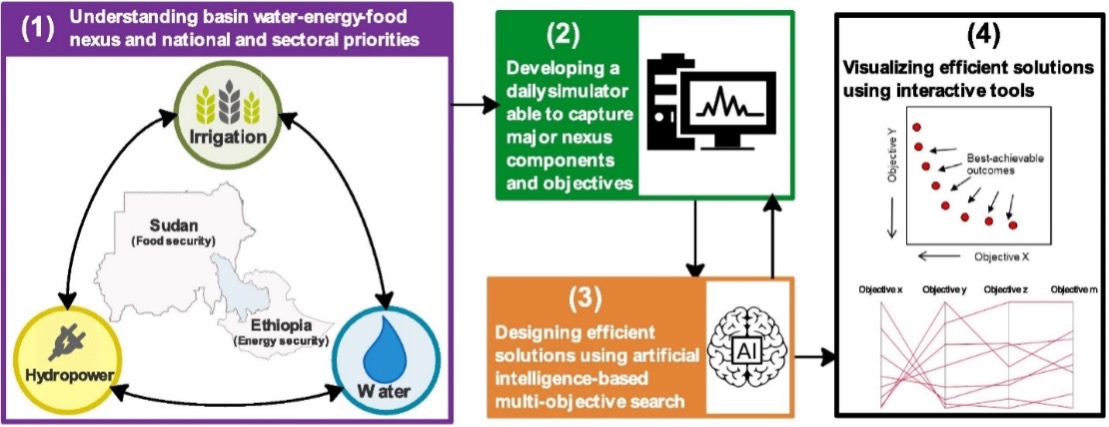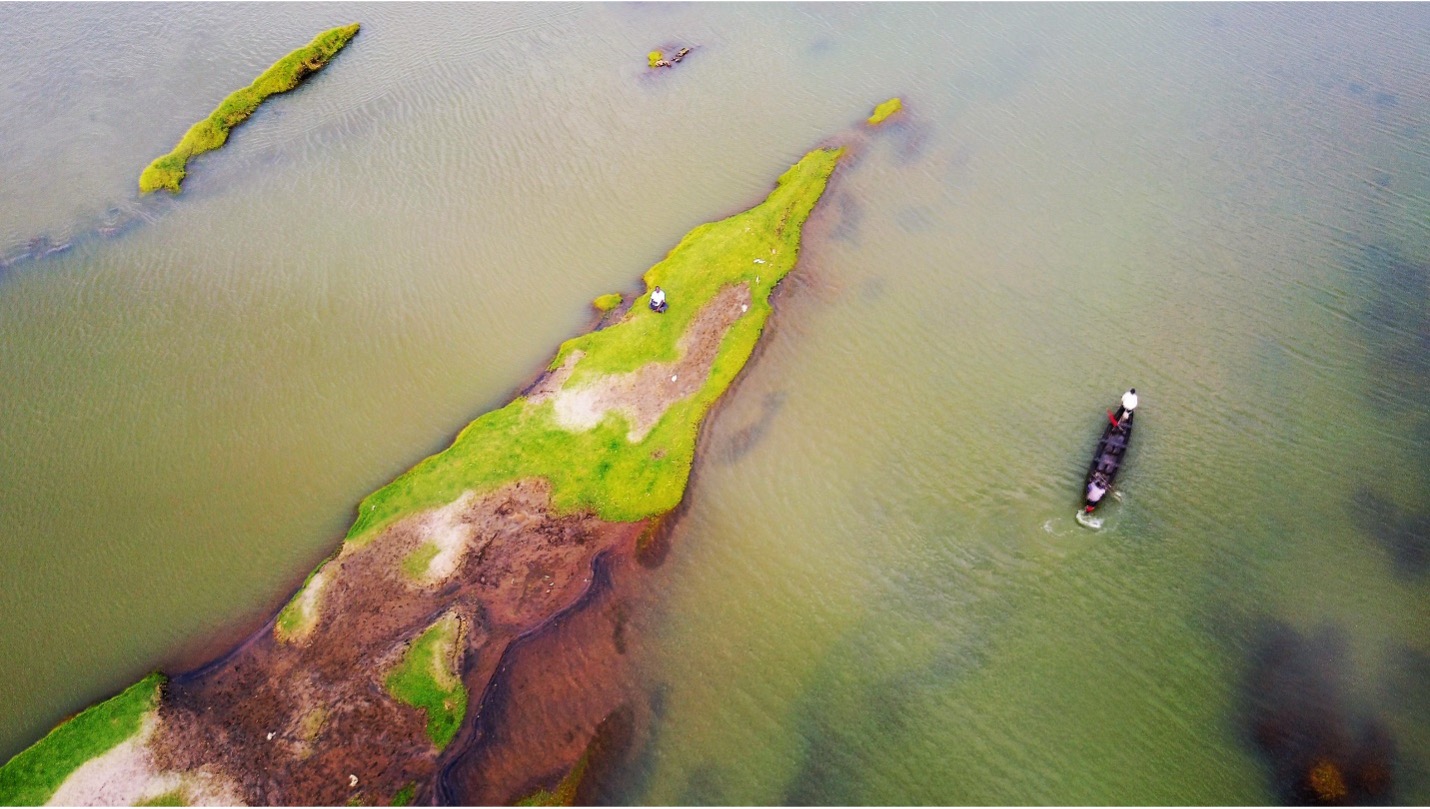The Nile, one of the world’s longest rivers, provides municipal, industrial and irrigation water and hydropower to millions across Ethiopia, Sudan and Egypt. However, reconciling the various needs of upstream and downstream countries remains a key challenge. In 2011, Ethiopia began construction of the Grand Ethiopian Renaissance Dam (GERD) project upstream, triggering concerns over water availability downstream.
Professor Mohammed Basheer’s (CivMin) research is addressing the complex challenges of water management in the Nile, aiming to improve policy and planning across the region. His work focuses on the water-energy-food nexus, incorporating the political and economic dynamics along the Nile River.
With around 86% of its streamflow (blue water) originating in Ethiopia, but nearly all streamflow being consumed in Egypt and Sudan, there are complex dynamics surrounding the Nile River, says Basheer. Water supply from the Nile accounts for around 97% of Egypt’s freshwater resources and a significant amount of irrigation and hydro in Sudan is sourced from the river as well. The GERD project could double Ethiopia’s electricity generation — where around 45% of the population does not have access to electricity as of 2021 — but is expected to affect the inter- and intra-annual variabilities of the Nile flow, potentially affecting water supply and hydroelectric power downstream in Egypt and Sudan.
“It is difficult to develop fixed long-term plans given the uncertainties stemming from the variability and shifts in the Nile flow,” Basheer says, highlighting the imperative need for adaptive strategies.
His research intends to enhance traditional water resource management methodologies by integrating artificial intelligence (AI), engineering and social sciences, and stakeholder engagement.
This interdisciplinary approach is shown in his four-step nexus-informed analytical framework developed in collaboration with partners at the International Food Policy Research Institute. Published in The Journal of Hydrology, the framework serves as a blueprint for navigating the interplay between water, energy and food resources at the basin scale, highlighting their interconnectedness.
“It makes sense to manage these resources together; if you aren’t thinking holistically, then interventions may produce tradeoffs,” says Basheer.

The first stage of the framework is understanding the food-water-energy nexus. Through consultations with stakeholders, researchers identified critical priorities and tradeoffs.
The second stage is simulation, where Basheer and his colleagues developed sophisticated models that encapsulate the complexities of the Blue Nile River basin. These models serve as virtual laboratories, enabling policymakers to explore various scenarios and potential interventions.
The third stage leverages AI algorithms in identifying patterns and recommending efficient strategies to balance tradeoffs between water, energy and food performance.
Stakeholder engagement and communication is the final stage. Visualizations and online tools facilitated the communication of findings, empowering policymakers with actionable insights.
Basheer’s work created partnerships with the International Food Policy Research Institute and other government and academic institutions. As a new professor at U of T Engineering, Basheer is applying his methodologies to projects in Ontario and across Canada.
“This interdisciplinary approach is applicable to various water resource systems internationally, and I hope it results in policy and operational enhancements,” he says.
“I envision a future where water resource systems are planned and managed holistically, incorporating engineering, economic, social and political dimensions.”





